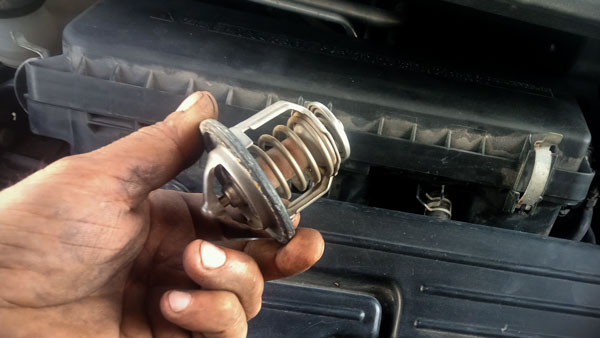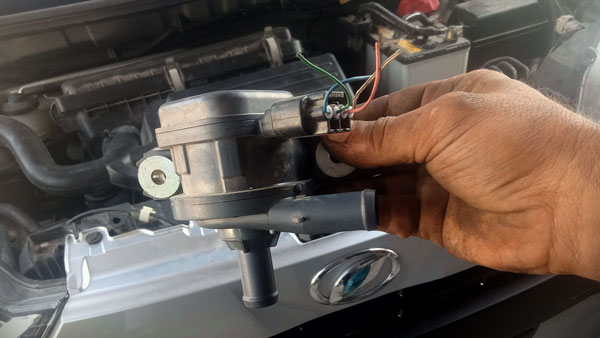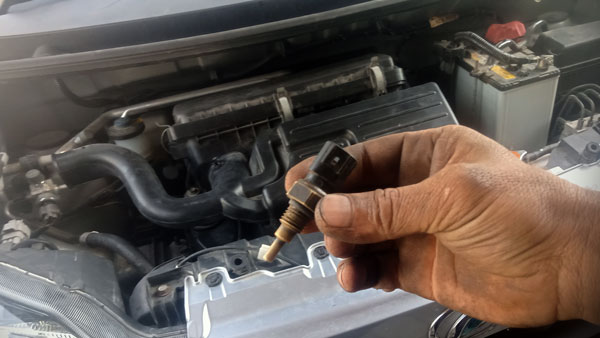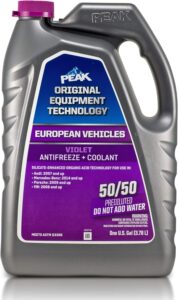Car Overheat When Idle Possible Reasons
We’ve all been there – sitting in our car, engine idling, and suddenly, the temperature gauge starts creeping into the danger zone. It’s a worrisome sight, and you might wonder, “Why does my car overheat when idle?” In this article, we’ll explain why this problem happens and give you ways to keep your engine cool and reduce stress.
Understanding the Basics of Car Cooling Systems
The Car’s Cooling System
Your car’s cooling system is like its own personal air conditioner, working tirelessly to maintain the engine’s optimal temperature. It’s a crucial component, and understanding how it functions is essential.
Components of the Cooling System
- The car radiator cools hot coolant before it goes back to the engine, playing a vital role in the cooling system.
- Water pump: The water pump circulates coolant through the engine and radiator, ensuring a consistent flow.
- Thermostat: The thermostat regulates coolant flow, opening when the engine gets hot and closing when it’s cool.
- Cooling fans: These fans kick in to dissipate heat when the car is idling or in heavy traffic.
How the Cooling System Keeps the Engine at the Right Temperature
Think of the cooling system as a traffic cop for your engine’s temperature. It manages the flow of coolant, ensuring it absorbs excess heat and maintains an ideal operating temperature.
Causes of Engine Overheating When Idle
Insufficient Coolant Levels
Low coolant levels mean less liquid to absorb heat, leading to overheating. Regular coolant checks are a must.

Malfunctioning Thermostat
A faulty thermostat can get stuck, either closed or open, disrupting the cooling process.

Cooling System Leaks
Leaks can cause a drop in coolant levels, reducing the system’s effectiveness. Keep an eye out for puddles under your car.
Clogged Radiator
Dirt and debris can block the radiator, preventing proper heat dissipation. Regular cleaning is crucial.
Faulty Water Pump
If the water pump isn’t doing its job, the coolant won’t circulate effectively, leading to overheating.

Problems with the Radiator Fan
Faulty cooling fans won’t kick in when needed, causing the engine to overheat in traffic or at idle.
Incorrect Temperature Readings
When a temperature sensor malfunctions, it may send incorrect readings to the ECU. If the sensor falsely indicates that the engine is running at a lower temperature than it actually is, the ECU may not trigger the cooling system to operate as it should. This can lead to the engine overheating.

Engine-Related Issues
Issues within the engine, like a blown head gasket, can lead to overheating problems.
Environmental Factors (e.g., Hot Weather)
Extreme heat can strain the cooling system, making it struggle to keep the engine cool when idling.
Signs and Symptoms of Car Overheat When Idle
Warning Lights on the Dashboard
Pay attention to dashboard warnings – they can alert you to an overheating engine.
Steam or Smoke from the Engine
If you see steam or smoke billowing from under the hood, pull over immediately.
Unusual Engine Noise
Odd noises, like hissing or clunking, can signal an overheating issue.
Elevated Engine Temperature Gauge
Keep an eye on the temperature gauge – it should stay in the safe zone.
Decreased Engine Performance
An overheating engine can lead to reduced power and efficiency.
Preventative Maintenance
Regular Coolant Checks
Regularly check and top up your coolant levels to ensure your engine stays cool.
Scheduled Thermostat Inspections
Have your thermostat checked during routine maintenance to catch issues early.
Radiator Flush and Maintenance
Periodically flush your radiator to remove built-up debris and maintain efficiency.
Water Pump Inspection
Check the water pump for leaks or signs of wear.
Cooling Fan Maintenance
Keep cooling fans in good working order to ensure they kick in when needed.
Routine Engine Checks
Regularly inspect your engine for any signs of trouble.
Protecting Your Car in Hot Weather
Take extra precautions in scorching weather – avoid idling excessively and use sunshades.
Troubleshooting and Diagnosing Overheating Issues
Step-by-Step Guide to Diagnosing Overheating
Follow a systematic approach to identify and resolve overheating problems.
Using Diagnostic Tools
Modern cars come equipped with diagnostic tools that can pinpoint cooling system issues.
Seeking Professional Help When Needed
If DIY troubleshooting doesn’t solve the problem, don’t hesitate to consult a professional mechanic.
Common FAQs about Car Overheating
1. Why does my car only overheat when idle?
Car engines produce more heat at idle, and if the cooling system isn’t functioning optimally, overheating can occur.
2. Can I drive with an overheating engine?
It’s not advisable. Continuing to drive with an overheating engine can cause severe damage.
3. How often should I check my coolant levels?
Check your coolant levels every few months and before long trips.
4. Is overheating more common in certain car makes and models?
Some cars may be more prone to overheating due to design or manufacturing differences.
5. Can I use water instead of coolant in an emergency?
While water can temporarily help, coolant is designed to protect your engine long-term. Use it as soon as possible.
DIY Solutions for Minor Overheating Issues
Adding Coolant
Top up your coolant if levels are low, but be cautious not to overfill.
Checking for Leaks
Inspect your cooling system for leaks and address them promptly.
Cleaning the Radiator
Regularly clean your radiator to remove debris that can impede cooling.
Testing and Replacing the Thermostat
If your thermostat is malfunctioning, have it tested and replaced as needed.
When to Seek Professional Help
Signs Indicating a Need for a Mechanic
If you notice persistent overheating, unusual noises, or warning lights, consult a mechanic.
Importance of Addressing Issues Promptly
Timely repairs can prevent costly engine damage and breakdowns.
Choosing a Reputable Auto Repair Shop
Select a trusted mechanic or auto repair shop with a good reputation.
Cost of Repairs and Maintenance
Cost Estimates for Common Overheating Issues
Repair costs can vary widely, but regular maintenance is more affordable than major repairs.
Factors Influencing Repair Costs
Factors like the extent of damage and car make and model can affect repair costs.
Budgeting for Cooling System Maintenance
Include cooling system maintenance in your budget to avoid unexpected expenses.
Conclusion
In the world of cars, keeping your engine from overheating when idle is a vital task. By understanding the causes and implementing preventative maintenance, you can ensure a smoother and cooler ride. Regular checks and prompt action can save you from costly repairs and keep your car running smoothly. Remember, a well-maintained cooling system is your engine’s best friend on the road.




